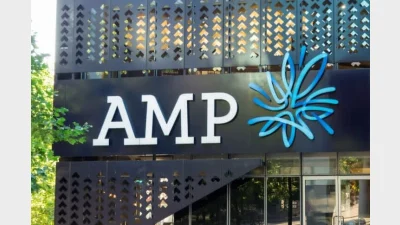(December-2003) The corporate super industry’s match-maker
A key theme in 2003, says Super Review’s panel, has been the accelerated outsourcing of corporate funds. And there to guide and influence these funds when they decide to take the plunge have been the tender consultants.
While the panel considered several prominent consultants as being influential, they decided that Chant had been the most influential over the year, because of the size of the tenders he’s been involved in and because of comments he’s made about the need for industry funds to up their game.
After identifying that corporate super was going to be a growing trend while working as joint managing director of Connelly Temple, Chant started his own business in January 1997. But it took time for his tender business to take off although his research work was relatively well known in the market.
“I never sent an invoice out to [an outsourcing] client for the first two years,” he says. That first invoice went to Zupps, a Queensland-based company.
Since then, Chant has been responsible for seven of the 10 largest super outsourcing deals in Australia, starting in 2001 with the tender for OneSteel — a complex $700 million fund that basically put him on the outsourcing map. Before OneSteel, the $200 million Pasminco fund had been the biggest yet to fully outsource and its destination was chosen in-house.
“OneSteel made the market sit up and look because it was such a big company outsourcing,” says Chant.
Other tenders include the funds of Western Mining, Boral and Orica, and over the past 12 months, St George Bank, Leighton Group, Coles Myer and Xstrata.
“We think we have a good case for outsourcing for funds with assets up to $1 billion and in a number of cases, even larger funds,” he says.
Chant believes the larger industry funds do offer sound investment options — mainly because they have good asset consultants behind them. They also offer good, low-cost services, but he says they haven’t really been that successful “because employers are skeptical about the influence of unions on them and because the better master trusts do offer much more… And until recently, most industry funds could not do defined benefits”.
He also believes many don’t put enough resources into member services and education. “They could easily increase fees and still be cheap and at the same time, improve member education,” he says.
However, he confirms that several industry funds have told him that they used the comments he made at this years’ Conference of Major Superannuation Funds in Hobart as an argument to their boards and have since increased their fees.
He notes: “I am not anti-industry funds. I always ask employers if they want to include industry funds in the tender.”
Chant’s partner Andrea West joined the business four years ago and he says her contribution has been an important reason for the success of the business. “It works well. We each have our own patch.”
Asked what drives them, he says: “We believe what we are doing is of direct benefit to members. Employers may engage us but what we do has an important outcome for members. In general, in-house corporate funds are light years behind the better industry funds and master trusts.”
Recommended for you
The super fund is open to the idea of using crypto ETFs to invest in the asset class, but says there are important compliance checks to tick off first.
ASIC has launched civil penalty proceedings in the Federal Court against one of the super trustees wrapped up in the Shield Master Fund failure.
Industry associations have welcomed the Treasurer’s review into the superannuation performance test and called for targeted changes that would enable investment in certain assets with strong long-term performance.
Super funds are strengthening systems and modelling member benefits ahead of payday super.











